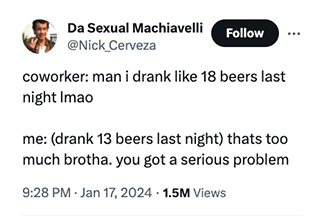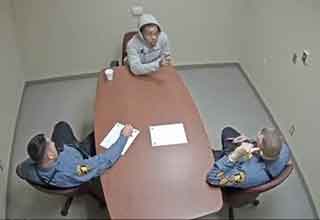Death of the Exclusionary Rule
Yesterday the Supreme Court took away some of your Constitutional rights in a narrow 5-4 decision. Congratulations, you now have fewer freedoms. Actually, none of us really had freedoms in the first place, we just have privileges. The difference between freedom and privilege is that there are things you are allowed and not allowed do according to the law, where as with true freedom you would have no restrictions. But, I digress. Some of these privileges you are guaranteed via the Constitution are called "rights," and you and I just lost one of those rights yesterday.
The right we lost was the right to The Exclusionary Rule. According to the Constitution, when you are arrested and put before a jury of your peers for crimes you are accused of committing, evidence that was obtained in violation of your constitutional rights is inadmissible in the trial against you. In other words, the police cannot break the law by violating your Constitutional right to privacy, and obtain evidence to use against you in court.
To clarify, here's the case that was ruled on by the Supreme Court:
In a small town in Alabama, a man by the name of Bennie D. Herring drove to his local police station to retrieve some items from his vehicle, which had been impounded. While at the police station, an investigator who recognized him (keep in mind, it was a small town) asked the County Clerk to look in her computer records to see if Mr. Herring had any outstanding warrants. She did not have any, so the officer then asked her to call the County Clerk in a nearby county and see if he had any warrants on file there.
They were in luck. Mr. Herring had a bench warrant in their records for his arrest. The police allowed Mr. Herring to leave the police station in one of his own vehicles, and then proceeded to follow him. A few minutes later, they pulled him over and he was searched and arrested. During the arrest, the police found methamphetamines and an unlicensed firearm. However, shortly after Mr. Herrings arrest, the County Clerk in the neighboring county realized her mistake. The initial warrant issued for Mr. Herring's arrest was a mistake. The warrant had been revoked months earlier, and was still in the computer records as a mistake. By this point in time though, the police had already discovered the drugs and the weapon, and continued to prosecute him for those illegal offences that were completely unrelated to their initial reason for arresting him. Mr. Herring served 27 months in prison for his crimes.
The 5 members of the Supreme Court who ruled in favor to uphold the conviction, felt that Mr. Herring's Constitutional right to The Exclusionary Rule did not apply.
In the words of Chief Justice John Roberts, who wrote for the majority, "To trigger the exclusionary rule, police conduct must be sufficiently deliberate that exclusion can meaningfully deter it, and sufficiently culpable that such deterrence is worth the price paid by the justice system. That price, of course, is letting guilty and possible dangerous defendants go free."
Let me translate that in JohnnyBax speak: In order for the Exclusionary Rule to apply to you, the police would have to have been intentionally trying to fuck you over in the first place, and even then the risk of letting you go outweighs our fucking up.
Writing for the 4 member minority in the ruling was Justice Ginsburg, who stated, "The Majority underestimates the need for a forceful Exclusionary Rule and the gravity of record keeping violations, particularly given the heavy reliance by law enforcement on electronic databases that form the nervous system of contemporary criminal justice operations." To which Justice Souter added, "A clear line needs to be drawn between police record keeping errors and judicial ones."
In JohnnyBax speak: If you allow mistakes stemming from bad computer records to lead to unlawful arrests, then it inherently creates flaws in the justice system and convicts people in spite of their Constitutional rights to privacy.
This ruling could be a crack in the damn that holds back what is left of our civil liberties these days. When the Supreme Court makes a ruling, it is regarded as precedent and the law of the land. What is to stop a police officer now, who just may not like you for one reason or another, from pulling you over and searching your car, or your house unannounced in the middle of the night? All he has to do now is claim that it was a "mistake" and that he had been told there was a warrant for your arrest. If he finds a bag of pot, you're fucked. How many of you have something in your private home that you would like to keep private? Should the Exclusionary rule apply to all as it has in the past? Or should a judge now be able to pick and choose when it's applied?






19 Comments